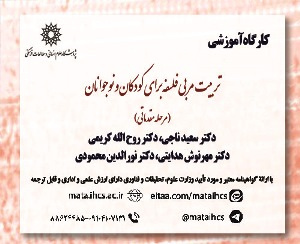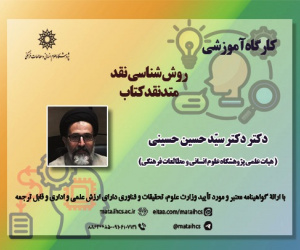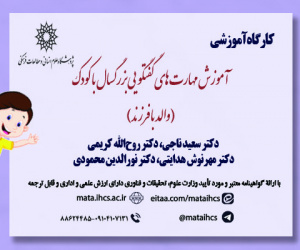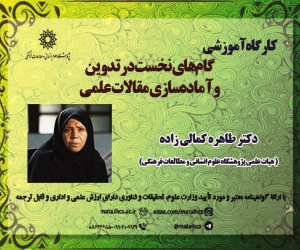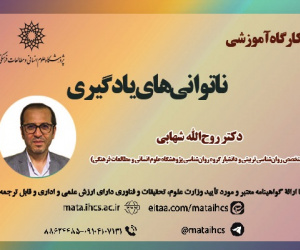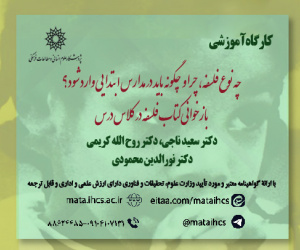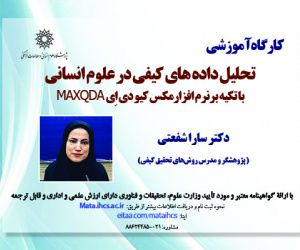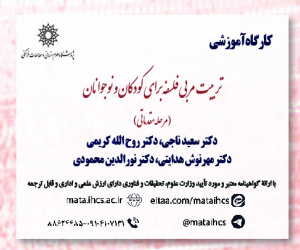پوزیتیویسیم ایرانی: میرزاملکم خان ناظم الدوله، آگوست کنت و اندیشه ی تغییر و پیشرفت (مقاله علمی وزارت علوم)
درجه علمی: نشریه علمی (وزارت علوم)
آرشیو
چکیده
زمینه و هدف: میرزاملکم خان ناظم الدوله، از یک سو رجل سیاسی بانفوذی است که نقش مؤثری در قدرت سیاسی حاکم داشته و از سوی دیگر روشنفکری آرمان گراست که سودای فراتر رفتن از وضع موجود و حرکت در مسیر پیشرفت جامعه ی ایران را در سر می پرورانده است. این دوگانگی در نقش آفرینی او، موجب شده است که چهره ای متناقض و حتا متضاد از او ترسیم گردد. هدف تحقیق حاضر عبارت است از فهم رابطه ی بین کنش های سیاسی میرزاملکم خان با اندیشه های وی. روش و داده ها: این پژوهش با استفاده از روش تحلیل محتوای کیفی و به کارگیری چارچوب نظری پوزیتیویسم، به ویژه آراء آگوست کنت انجام شده است. بر این اساس، مقولات بنیادینی چون «جبری و جهان شمول بودن حرکت تاریخ»، «اندیشه ی ترقی و اعتقاد به پیشرفت»، «علم گرایی»، «محوریت نظم و قانون گرایی»، «تقسیم کار و تخصصی شدن»، و «نخبه گرایی و دیوان سالاری» از آثار ملکم خان استخراج و تحلیل شدند. روایی و پایایی تحقیق نیز با انتخاب چارچوب نظری مناسب و تدوین مقولات جامع و مانع به دست آمد. یافته ها: یافته ها نشان می دهد که تمامی عناصر شش گانه ی پوزیتیویسم کنت، با قوت در اندیشه های ملکم خان وجود دارد. ازین منظر، می توان وی را پیرو پوزیتیویسم کنت دانست که راه برون رفت از عقب ماندگی ایران را در پیروی از همان سنت پوزیتیویستی جستجو می کرد. بحث و نتیجه گیری: ریشه های دوگانگی در کنش ها و اندیشه های میرزاملکم خان را می توان در تأثیرپذیری او از پوزیتیویسم اروپایی و به ویژه آراء کُنت یافت. این تأثیرپذیری، بسیاری از اقدامات و موضع گیری های سیاسی و اجتماعی وی هم چون موافقت با اعطای امتیازات به بیگانگان و پیروی بی چون وچرا از اصول تمدن جدید را توجیه می کند. این اقدامات را نمی توان صرفاً به انگیزه های شخصی نسبت داد، بلکه باید آن ها را بازتابی از بن مایه ی اندیشه های او دانست که ریشه در پوزیتیویسم داشت. پیام اصلی: اندیشه ی پوزیتیویسم، در ایرانِ آن زمان تنها منحصر به میرزاملکم خان نبوده و نتیجه ی این پژوهش را می توان بر سایر کنشگران اجتماعی و سیاسی هم عصر وی و پس از آن نیز قابل اطلاق دانست. این یافته ها، علاوه بر روشن کردن بخشی از تاریخ فکری ایران، می تواند به درک بهتر نقش اندیشه های غربی در تحولات اجتماعی و سیاسی معاصر ایران کمک کند.Iranian Positivism: Mirza Malkam Khan-e- Nazemodoleh, August Comte, and the Idea of Change and Progress
Background and Aim: Mirza Malkam Khan-e- Nazemodoleh, was an influential stateman who had effective role in dominant political power on one hand, and was an idealistic intellectual who followed changing the status quo and idea of moving Iran toward progress and development on the other. The paradoxical sketch and even antithetical, is the result of his ambiguous role-playing in two different spheres of acting and thinking. In this way, the aim of this research is to explain the relationship between his political actions and his thoughts.
Data and Method: The theoretical framework of the research is positivism, mainly of August Comte. A qualitative content analysis is used to serve the purpose of the research. According to the research method and based on the conceptual framework and Malkam’s works, fundamental categories are extracted such as: “historical determinism and universalism”, “the idea of progress”, “scientism”, “the centrality of order and laws”, “division of labor and specialization”, “elitism and bureaucracy”. The validity and reliability are achieved by selecting appropriate theoretical framework and formulating in-exclusive categories.
Findings: All elements of the fundamental categories, which are included in the positivism of Comte, could strongly be traced in Malkam Khan thoughts. Therefore, he can be seen as a follower of Comtean positivistic tradition, seeking to address Iran’s underdevelopment through this lens.
Conclusion: Malkam Khan’s duality can be traced in his intellectual alignment with European positivistic tradition, especially the ideas of Agust Comte. This influence is evident in his political and social orientations, including his advocacy for foreign concessions and commitment to the principles of modern civilization.
Key Message: Positivist thought in Iran extended beyond Malkam Khan, influencing other social and political actors of his era and shaping Iran’s intellectual and political landscape. These insights not only shed light on a part of Iran’s intellectual history but can also contribute to a better understanding of the role of Western thought in contemporary Iran’s social and political changes.


